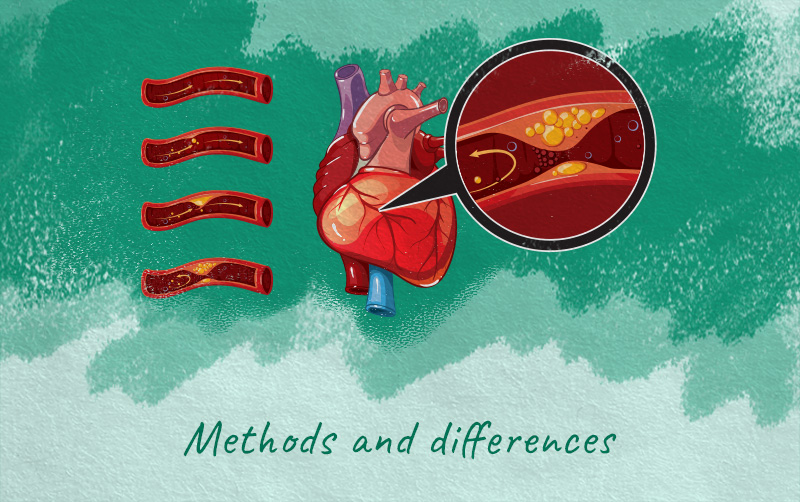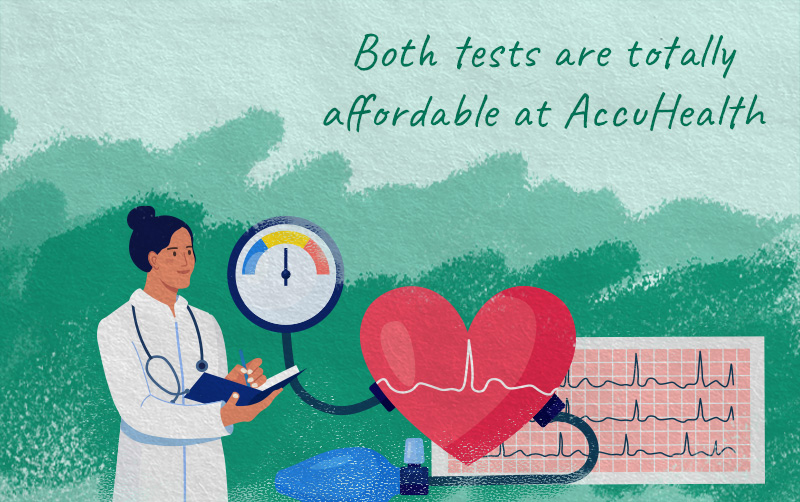Five Differences Between an ECG and an Echo That You Must Know
May 07, 2022
Cardiovascular diseases or CVDs are the major cause of death in humans worldwide. Heart attack and stroke contribute to almost 85% of global deaths every year. CVDs cause one in 4 deaths in India. In this environment, there are two tests that doctors widely suggest to detect heart problems — Echocardiogram (or echo) and Electrocardiogram (ECG/EKG).
As popular as these two procedures are, people often confuse one with the other. This blog points out the differences between an Echo and ECG.
 Process
Process
An ECG/EKG is a non-invasive, painless heart monitoring test that primarily provides information on the rhythm of your heart, specifically to check if the electrical activity of the heart is regular or unusual by using electrodes.
In an Echo, high-frequency sound waves are sent to the body. When the sound waves bounce or ‘echo’ back, it produces an image of the heart. On the other hand, an echocardiogram is simply an ultrasound of your heart that makes multidimensional pictures of your heart’s activity. It mainly looks for any abnormality in the heart’s structure using ultrasound.
Purpose
To put it simply, in an ECG/EKG, a healthy heart will print consistent shapes of waves on the electrocardiogram graph. It comes as a printout almost immediately.
If the waves are inconsistent or irregular, it is a sign of heart disease. An ECG is also done when the patient has a family history of heart problems or has heavy drinking habits.
Usually, doctors prescribe an Echo if your ECG/EKG results are abnormal. An Echo is used to diagnose valvular heart disease, and congenital cardiovascular disease, identify myocardial infarction in its initial stages, detect cardiomyopathies, etc.
Time Spent
An ECG/EKG takes just about 5 minutes. It is a short test where most of the time is spent positioning the leads on the patient’s body, and just a few seconds are spent generating the tracing.
However, an Echo takes a minimum of 20 minutes. The first 5 minutes is preparation time, and the next 15 is spent on imaging. It may take even more time depending on the amount of information the doctor needs.
 Risks Involved
Risks Involved
Risks associated with an ECG/EKG are minimal and rare. However, your doctor will make notes before the test if you are obese, diabetic, pregnant, or on any medications. You might feel uncomfortable when the sticky electrodes are taken off. If they are left too long, they might cause skin irritation.
Again, there are no known risks or complications of a standard transthoracic Echo. It rarely can cause breathing problems or a slow heart rate. To understand what a 2D Echo test in Kolkata costs, keep reading below.
Costs
The cost of an echocardiography test in Kolkata can vary from lab to lab. Many of the top diagnostic centres in Kolkata often charge a premium for these tests. At AccuHealth Diagnostics, we understand the value of these tests for patients of all ages and financial backgrounds. A 2D Echo test at out lab ranges in between Rs.1250-1500 in Kolkata. An ECG/EKG costs much lesser at around, starting from Rs. 250, depending on the type of tests your doctor prescribed.
Now that you know the major differences between the echocardiography (Echo) and electrocardiography (ECG/EKG) tests, you can take advantage of these tests with confidence. Contact us to learn more about our process and costs for ECG and 2D Echo in Kolkata.



